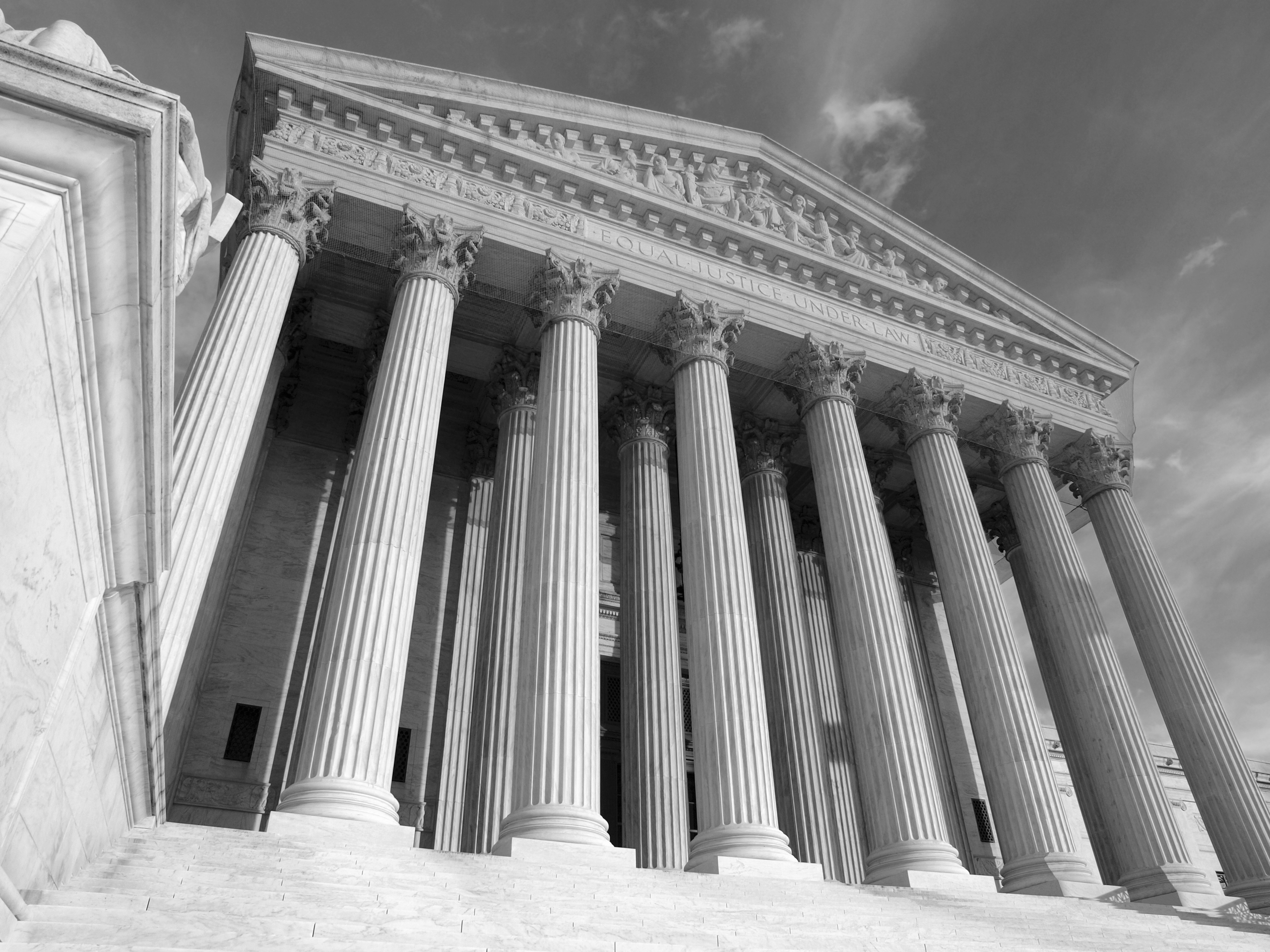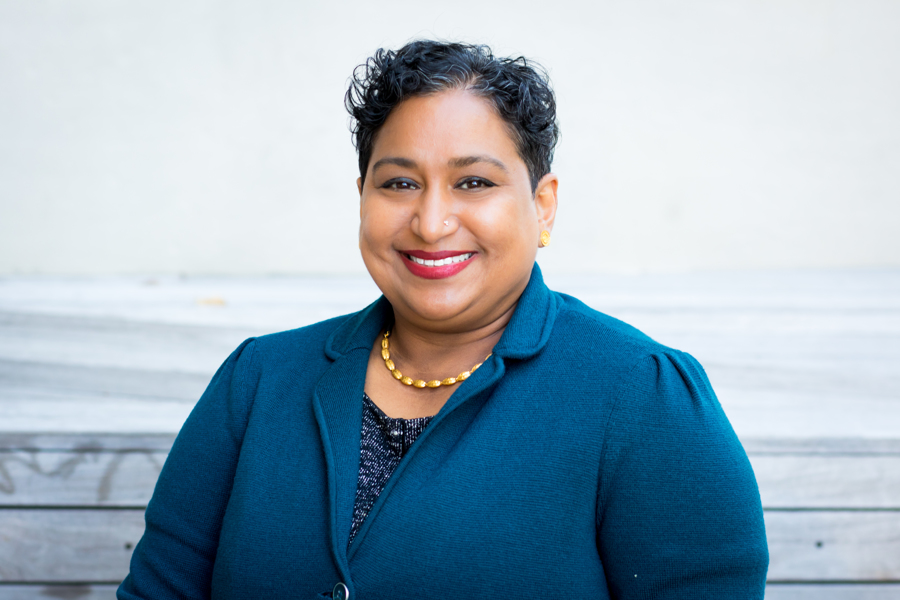Abortion rights, women of color, and LGBTQI+ people are under attack. Pledge to join us in fighting for gender justice.
NWLC Urges Supreme Court in Groff to Revisit Standard for Employees’ Religious Accommodation Requests and Consider Harms to Others

UPDATE: June 29, 2023 – The Supreme Court ruled that employers must accommodate religious employees unless doing so would impose substantial increased costs. The Court left in place an earlier ruling that employers need not grant accommodations that would conflict with other employees’ seniority rights. This opinion gives employees, including those of minority faiths, a fair chance at religious accommodations. At the same time, we caution against weaponizing accommodations, including against reproductive & LGTBQ rights. Today’s victory could be tomorrow’s loss. We’ll fight at every turn against accommodations that create harms such as allowing the harassment of colleagues or turning away patients.
* * *
Civil rights legal protections for workers are one tool for promoting inclusivity and equity in the workplace. For example, Title VII of the Civil Rights Act of 1964 is a federal law that prohibits discrimination in employment on the basis of race, color, religion, sex, or national origin. As part of Title VII, employers must provide reasonable religious accommodations (such as time off for religious observances or modifications to dress codes for religious attire) to employees who request them, unless the employer can prove that providing religious accommodations would result in an “undue hardship” on the business or organization.
In Groff v. DeJoy, a case being heard today at the Supreme Court, the Justices must analyze what standard should be used when an employer decides whether a religious accommodation poses such an “undue hardship.” In a previous case, Trans World Airlines, Inc. v. Hardison, the Supreme Court decided that for an employer to deny a worker’s request for religious accommodation, the employer need only show a little something, and so anything “more than a de minimis cost or burden” was grounds to deny the request. In plain language, this way of interpreting “undue hardship” in religious accommodation cases has meant that many employees have been denied reasonable accommodations for their religious practices, even if the requests don’t create harms to the employer, including other workers or customers/patients.
The National Women’s Law Center (NWLC) knows what the Supreme Court should do; however, we are painfully aware that the current majority on the Supreme Court often sides with those making religious claims, with little regard for others who may be harmed. Thus, the appropriate standard should be one that would both allow for a more generous standard for employees seeking religious accommodations but also require employers to ensure that other employees or third parties (such as customers or patients) are not harmed in the process. NWLC calls on the Supreme Court to issue a ruling that acknowledges both of these important sets of rights, as similarly urged by the National Employment Lawyers’ Association and the National Insitute for Workers’ Rights.
The current case arose in 2021, when Plaintiff Gerald Groff sued his employer, the United States Postal Service (“USPS”), for violating Title VII by failing to reasonably accommodate his religion. Based on his religious beliefs, Mr. Groff informed USPS that he was unable to work on Sundays. To accommodate Mr. Groff, USPS offered to find employees to swap shifts with him. But on more than twenty Sundays, no co-worker would offer to swap, and Mr. Groff did not come to work. Mr. Groff was consequently disciplined and ultimately left USPS.
Although the District Court and Third Circuit Appeals Court found that USPS failed to provide Mr. Groff with reasonable accommodation because the shift swaps offered did not eliminate the conflict between his religious practice and his work obligations, both courts ruled in favor of USPS, finding that the accommodation would cause an undue hardship on USPS. The courts found that the requested accommodation had a negative impact on both work productivity and Mr. Groff’s coworkers, who were required to work additional shifts.
Mr. Groff is appealing and asking the Supreme Court to consider: (1) Whether the court should require more for employers to demonstrate “undue burden” in order to refuse providing workers with Title VII religious accommodations; and (2) Whether an employer may show “undue hardship” on the conduct of the employer’s business” by showing that the requested accommodation burdens an employee’s co-workers, rather than the business itself. (Notably, this phrase “undue hardship” is also used in Americans with Disabilities Act (ADA) cases. Even though the phrase is interpreted differently in the ADA context, there too, employees are far too often denied the disability related accommodations they need).
In this case, as with all cases of workers’ requests for religious accommodations, it is important both to protect the civil rights of those seeking accommodations, and the rights of others. The others include co-workers and third parties such as patients or customers. Additionally, it is important to ensure that religious accommodations are not an invitation to allow religious intolerance or harassment of other employees For instance, if an employee in a pharmacy seeks religious accommodations to avoid dispensing birth control or other medication based on religion, the employer must ensure that customers seeking such medication are not turned away and can obtain the medication they need promptly and seamlessly. If a patient requires gender-affirming health care, it is crucial that the patient receive such care regardless of health care workers’ own religious beliefs. In short, it is critical that employers do not allow (for example) LGBTQI+ employees or those who need reproductive health care, including abortion care, to be denied care, harassed, or otherwise discriminated against in the name of accommodating other workers’ religious beliefs as further highlighted in the amicus brief filed by Americans United for the Separation of Church and State and Lambda Legal Defense Fund Inc. Thus, to be clear, employers are not required to tolerate or “accommodate” employees’ religious harassment of other employees or have its business turn away customers in the name of providing religious accommodations.
NWLC urges the Supreme Court to: (1) modify the existing standard so that employers cannot so easily deny workers’ religious accommodation, and (2) ensure that any analysis of “undue hardship” includes the harms faced by co-workers and other third parties. Thus, NWLC is in solidarity with Mr. Groff, and supports the need to reevaluate the current standards so that employees, including those of minority faiths, have a fair chance of obtaining religious accommodations in the workplace. Additionally, NWLC is in solidarity with other employees, and customers or patients, who may be harmed by these kinds of accommodations and thus urges the Court to take the full picture into account when creating the appropriate standards for workplace religious accommodations.





